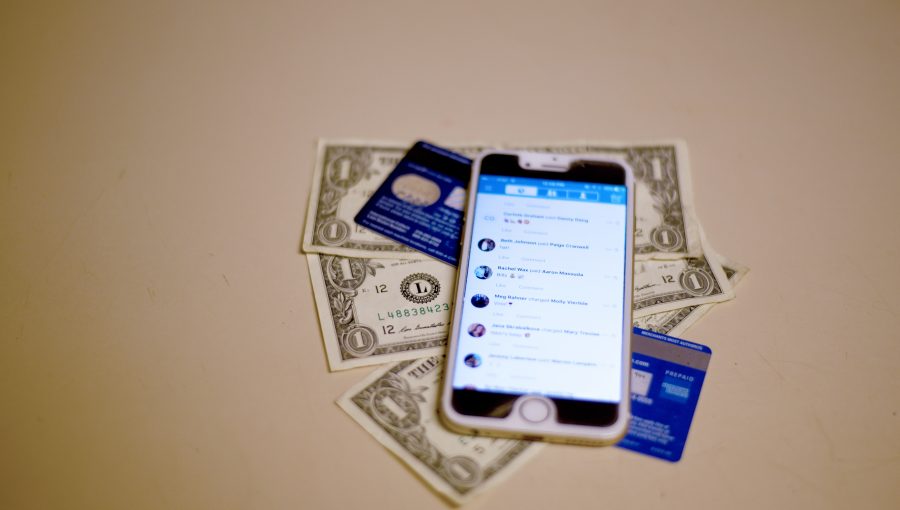For many University of Alabama students, spring break is a time for fun and relaxation, but for their
Will Walsh, a professor in the economics department, said there are two things students should consider: what they can do in advance to get money and what they can do once they get to their destination in order to save money.
Walsh’s first suggestion for students is that they forgo current consumption and save, save, save. Walsh understands it is somewhat unreasonable for students to have a savings account specifically for spring break but said that change jars or swear jars are good ways to save money.
“Let’s say three girls lived in a house together and … are going to go on spring break together,” Walsh said. “Maybe y’all start a change fund, and all the change that goes into that won’t get touched for a year. Then we’ll take it to Publix, dump it in the cyclone, see what we got and use that for group funds.”
Saving is especially key for students who aren’t going on lavish spring break trips this
“Just accept the fact that they scheduled you,”
Dewitty has come to terms with her situation, reconciling it with the hope that she will make and save enough money to be able to go to Austin, Texas, for next year’s spring break.
Willpower is the name of the saving game, though. For students who have a tough time keeping their hands out of their piggy banks, Walsh suggests finding ways to generate quick money.
One way to do
“You could piggy back spring cleaning with some kind of selling of [personal items that you no longer want], and that may get you enough money to do something,” Walsh said.
Katarina Bielinski, a freshman majoring in chemistry, is going to Florida for spring break. In preparation for the trip, Bielinski got a job and has both generated money and saved. She recommends other students try and do both in the future as well.
“They should set aside a certain amount of money from every paycheck for spring break and put it in a savings account,” Bielinski said.
Another thing to consider is how to save money while on spring break.
Before leaving Tuscaloosa, Alec Hopkirk, a freshman majoring in chemical engineering, said students should write out a budget, a sentiment that Walsh agreed with.
“[They should think], ‘Now that we know there are limited funds, how are we going to plan to stretch those funds as far as possible?’ ” Walsh said.
Bielinski plans on going grocery shopping the first day so that she and her friends don’t have to eat out too much. Her grocery list will include sandwich ingredients, fruit, snacks and beverages to bring to the beach.
Piggy backing on the idea of eating in to save, Walsh suggested students commit to having cereal for breakfast, make around half of their lunches and get a group of people together to grill burgers or make seafood as a cheaper, fun dinner alternative. Students should also consider happy hours and early bird specials.
“If you’re willing to eat early you can save,” Walsh said.
Beyond saving on food, Hopkirk suggested students find fun activities that don’t break the bank.
“Hiking and camping [are good options],” said Hopkirk, who hopes to do both.
Walsh agreed, noting that many beach activities are fun and cheap. Shifting roles from economist to cupid, Walsh suggested that guys bring a dog to the beach in order to meet girls, provided that the place they are staying at is dog-friendly.
He also proposed they bring three decks of cards, a football, Frisbee and Pro Kadima, a game he described as “badass.”
For students leaving the state of Alabama, Walsh said another way to save is to buy anything they may need for the trip – Pro Kadima, food, alcohol, etc. – in another state, provided that that state has a more favorable tax zone.
In order to get to those favorable tax zones, Bielinski recommends students drive to their destination with a full car of people so they can split gas costs. She said the same should be done for housing. For students who have yet to figure out housing, Hopkirk noted that Airbnb can be a cheap option.
Beyond how to get money and how to spend it, there’s the question of how to bring it.
“This is
Walsh suggests that students who are bringing $400 should bring $100 of that in cash. That should be accompanied
Walsh also advised students to bring a copy of their driver’s license along with the original.
Students should not bring each of these things out with them, and if they do, they should put them all in different places: some things in a wallet, some in a pocket, some in the back of a phone, etc. Walsh recommends keeping things separate because someone is likely to lose their wallet, and then they won’t have anything.
Apps such as Google Wallet, Apple Pay, Venmo and Paypal are strong options for students as well. Walsh said students should set up these apps and their banking app before leaving for spring break so that they can pay for things without needing to have cards or cash on them.
“The less that [students] have to carry around their ID or ATM card, the better, because those are things that are going to be very easy to get lost,” Walsh said.
Ultimately, the key is for students to have a plan – a plan for what methods to pay in, for how to not break the bank and for how to save or generate money in order to have the funds to begin with.







